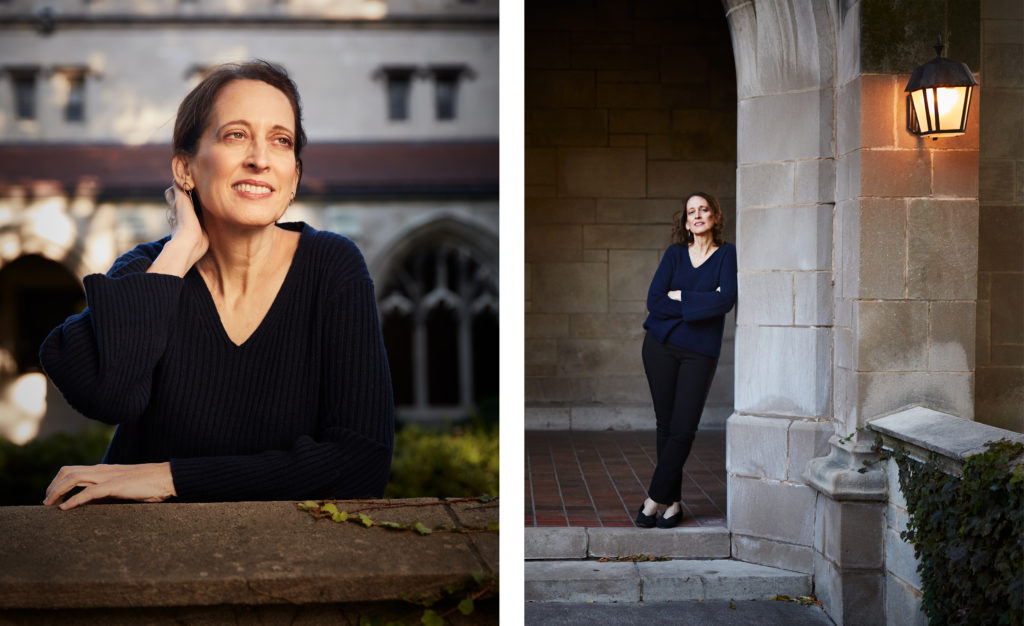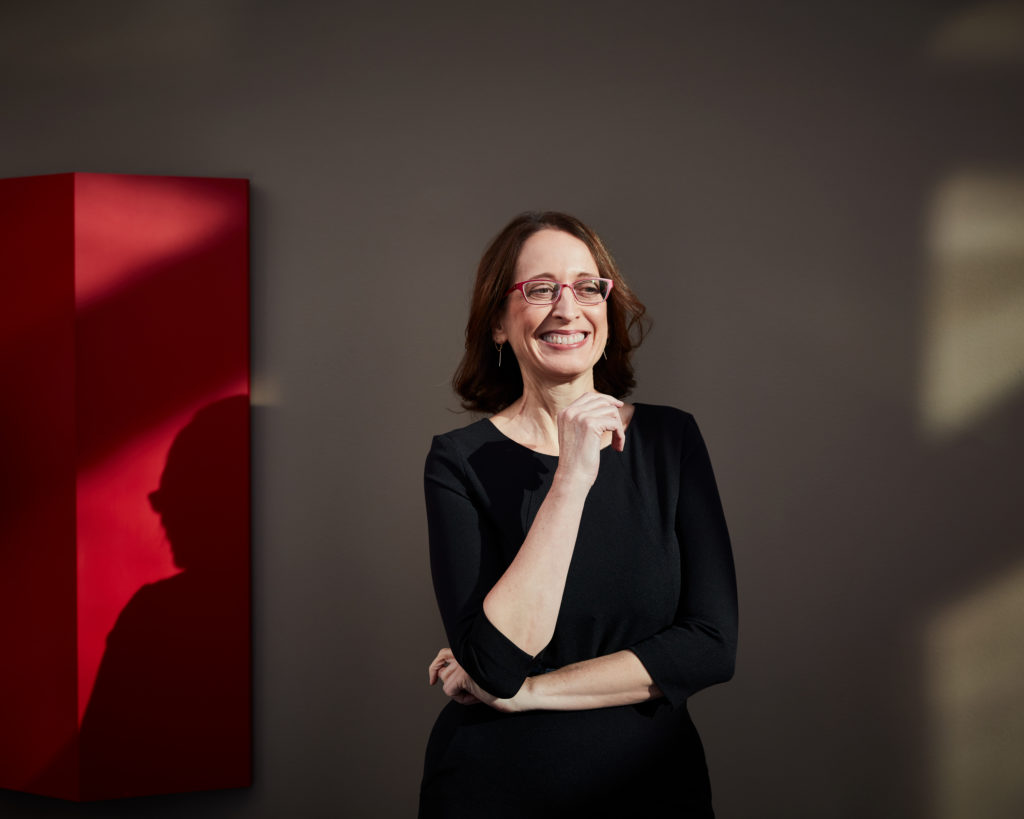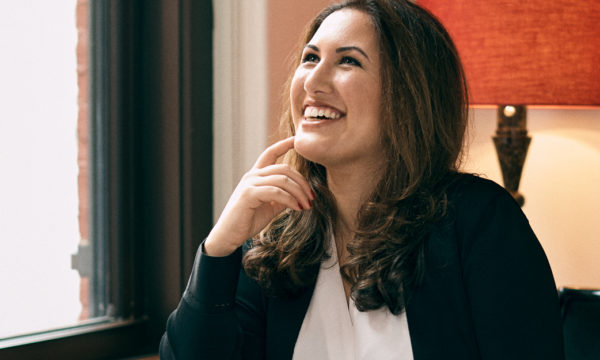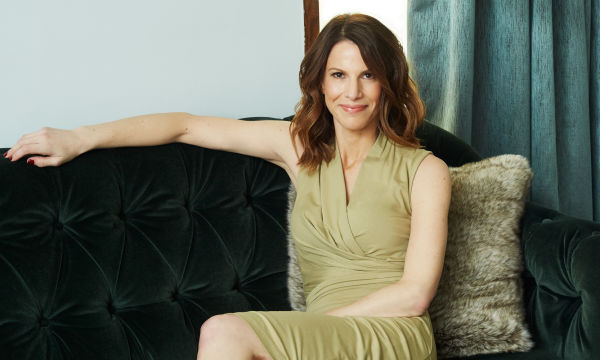Psychologist Ayelet Fishbach Wants Us to Make Smarter Decisions—And Have More Fun
November 29, 2017 | Filed in: Woman of the Week
Ayelet Fishbach is a professor at the University of Chicago’s Booth School of Business, where she studies human motivation at the Center for Decision Research. Her job involves finding out how we can all make better choices in our lives, and stick to the goals we set. (No big deal, but she also works in the same research group as Richard Thaler, the winner of the 2017 Nobel Prize for Economics.) We visited her office in Chicago to talk temptation, intuition, and psychological tricks to live by.
I’VE ALWAYS BEEN INTERESTED IN HOW PEOPLE STAY MOTIVATED. I studied psychology as an undergrad, and found that social psychology involved asking an age-old question: What are the most effective ways to solve problems, both for ourselves and for others? Now, I get up every morning and think about why people fail at self-control, ranging from diet regimens to finishing college to sticking with long-term goals.
YOU WOULD THINK THAT EVERYTHING PSYCHOLOGISTS DO, we do really well, but we’re often amazed by how often we fail to implement our own knowledge in our day-to-day lives. Just because you know something doesn’t always mean that you do it. For example, we teach that the most effective meetings happen when everyone thinks about the topic independently beforehand. That’s the whole point of the meeting: to bring together diverse ideas and opinions. Still, my colleagues and I sometimes meet before we have thought about an issue, and then the first person talks, and everybody says, “Oh yeah, that sounds right,” and we might as well not have met at all. We fall into the very trap that we teach others not to fall into. We try, but we’re human.

Ayelet wears the Bancroft top in tarragon and the Foster pant in black.
I’VE DONE A COUPLE OF STUDIES THAT PUT ME ON THE MAP. One found that people are better at self-control if you tell them in advance about an upcoming temptation: If you tell them that there is going to be alcohol served at the party, they will drink less. Or if you tell them about the food that is going to be served, they will eat less. It’s almost like inoculation, knowing that a temptation is coming. As another example, if you know that you need to study, and you also know your friends are going to suggest that you go to a party instead, you can anticipate that. But if there is no warning, it might be harder to say no.
I TEST A LOT OF MY STUDIES IN MY OWN LIFE. One of the things that we recently studied is the link between fun and the intrinsic motivation to adhere to long-term goals that are not fun. We found out, for example, that people who enjoy exercising will do it more than people who don’t, even though both groups say that they don’t exercise in order to enjoy themselves—they exercise in order to be healthy. Very few people go to the gym because they want to have fun; they go because they want to be in shape. Nevertheless, the extent to which they have fun is the biggest predictor of how long they stick with it. That finding has totally changed my own regimen: I used to do what I thought would be most effective, and then after this study, I said, “Whatever. I’m just going to do the exercise that’s the most fun for me, which is to watch my favorite TV show while running.” Now I only do that, and I’ve been enjoying myself, and I exercise more! So I do learn from my own research.

Ayelet wears the Min sweater in navy and the Foster pant in black.
MY OLDEST DAUGHTERS ARE HIGHLY SPECIALIZED in psychological tricks. I can’t get away with anything. For example, when you negotiate, you should make a first offer that is very different from where the other person wants to end up. I can maybe do that with my son, who is little, but my two older girls will not fall for it. So I do use psychology in how I approach people, but I’m also often interacting with people who expect it. I know that what predicts whether kids eat healthfully is not the extent to which we tell them to—it’s the kind of food we serve. To get your child to eat healthfully, you just serve a mix of healthy food, and if they don’t touch it, that’s fine; try again tomorrow. It’s not a trick. My kids know that I’m doing that.
I GREW UP IN A SMALL COMMUNITY in Israel called a kibbutz. It’s basically a small socialist village where everybody makes the same amount of money and lives together. It’s very, very different than the University of Chicago Business School—basically the opposite ideology. I see the contrast as an advantage; I think it gives me a unique, outsider’s perspective. It was also good to be raised in a society where I never doubted whether it’s possible to have a career while also being a mother. Where I grew up, it was expected that you’re supposed to do both, and for my American colleagues, that’s often less clear.

Ayelet wears the Bancroft top in tarragon, the Foster pant in black, and the Woolf jardigan in black.
WHEN I STARTED STUDYING PSYCHOLOGY, I wasn’t aware that my current job—which is partially to teach, but also to design studies and present research—actually existed. I was aware that some people study psychology to become therapists, but that didn’t appeal to me; I was more interested in questions about cognition and physiology. Then I saw that my professor was doing these cool research papers, and I thought, “Oh, there’s this whole academic side.” I stayed at Tel Aviv University to get a master’s degree, and then a Ph.D, and new opportunities opened up at every turn. Only while I was in the middle of getting my Ph.D did I feel like, “Oh, I could have an academic career.” It was more that my options followed my education, not that I had a plan from the beginning.
I GOT TO THE BOOTH SCHOOL OF BUSINESS almost by accident. Today, a lot of people apply social psychology to marketing and business management, but when I started, that wasn’t really done. In 2002, I finished my post-doctoral training and was looking for my first job, and the only business school that was hiring social psychologists was this one, as far as I knew. I applied for—and got—this job. Previously, my research was only concerned with basic psychology, primarily focused on health-related issues. But once I got here, I realized that there was a lot of opportunity to focus on consumer behavior, and I began to study marketing. There are also a lot of questions to ask about management and managerial decisions—how to help people make better decisions and motivate their employees, and also how to motivate managers themselves. To create a good business education, it’s not enough to teach accounting and finance—business leaders need to understand decision making, which is influenced by cognitive and social psychology.

Ayelet wears the Etsuko dress in black.
COMING TO THE U.S. WAS NOT EVEN A QUESTION. It’s part of the education system in Israel that if you want to have an academic career, you’re expected to spend a couple of years out of the country—and given that a large percentage of academic research is located in the U.S., a lot of academics end up here at some point. It’s where most of the research in social psychology and the behavioral sciences takes place. So I came here to finish my Ph.D, and I liked it. The difference between research in the U.S. versus everywhere else is striking. There is such a large research community here, and so much interest and excitement. I didn’t think I would stay this long. But opportunities kept opening up, and here I am.
TO BE A GOOD RESEARCHER, you have to have good ideas and intuition. You also need a thick skin. Sometimes you fail, and there’s a lot of criticism. As an academic, you cannot be easily discouraged or insulted. I don’t get stressed very easily. When things don’t work, I move on. That’s life. Of course, when my study fails or my paper is rejected, that pains me a lot. My first year in this job, I got a harsh rejection from a journal, and I didn’t know if I would be able to publish my research. I was worried that I wouldn’t be able to communicate effectively in a different cultural context. You have these crises, especially when you’re younger. No one likes getting old, but one of the silver linings is that you’re more sure about what you’re doing.
Photographs by Taylor Castle.









